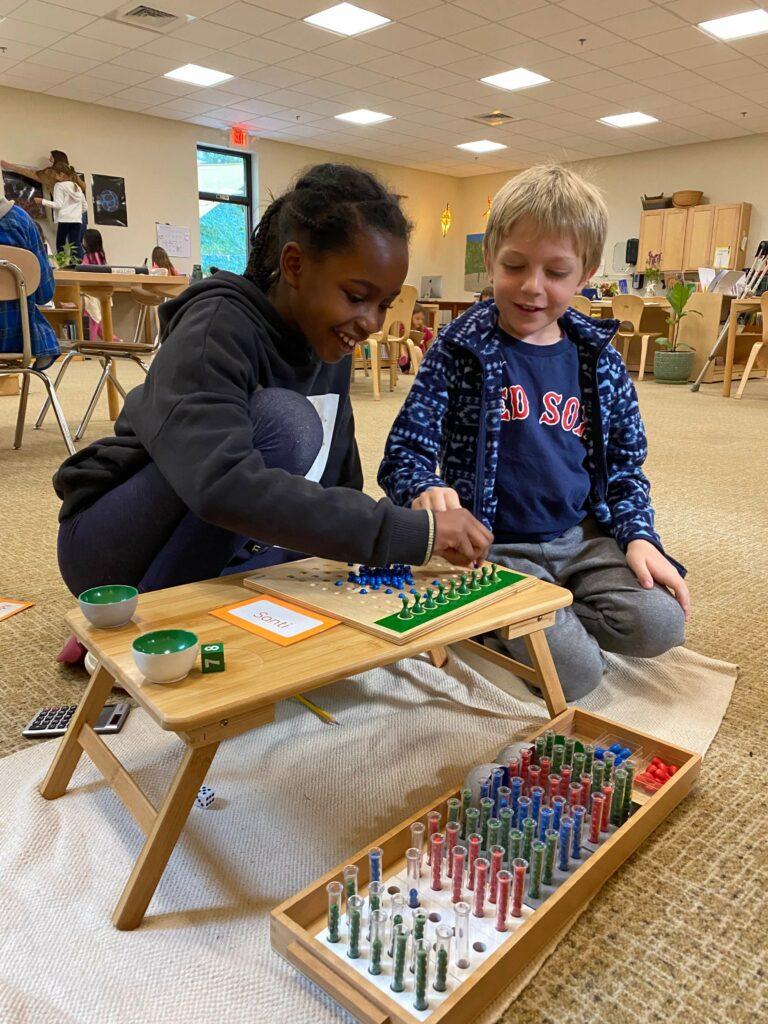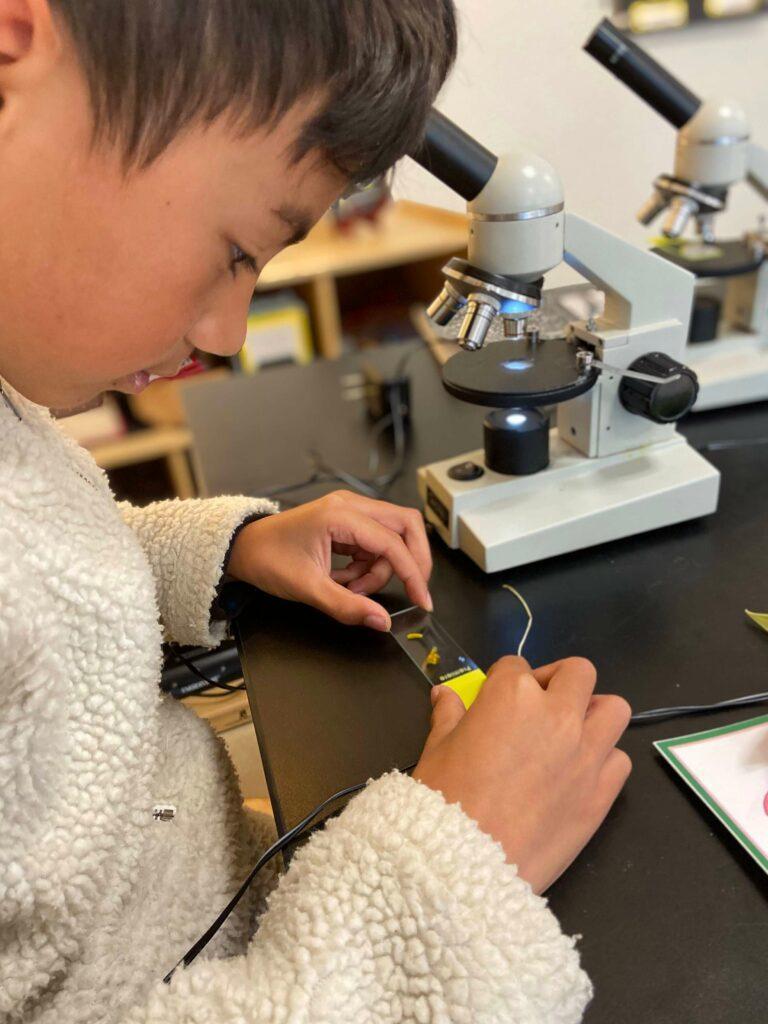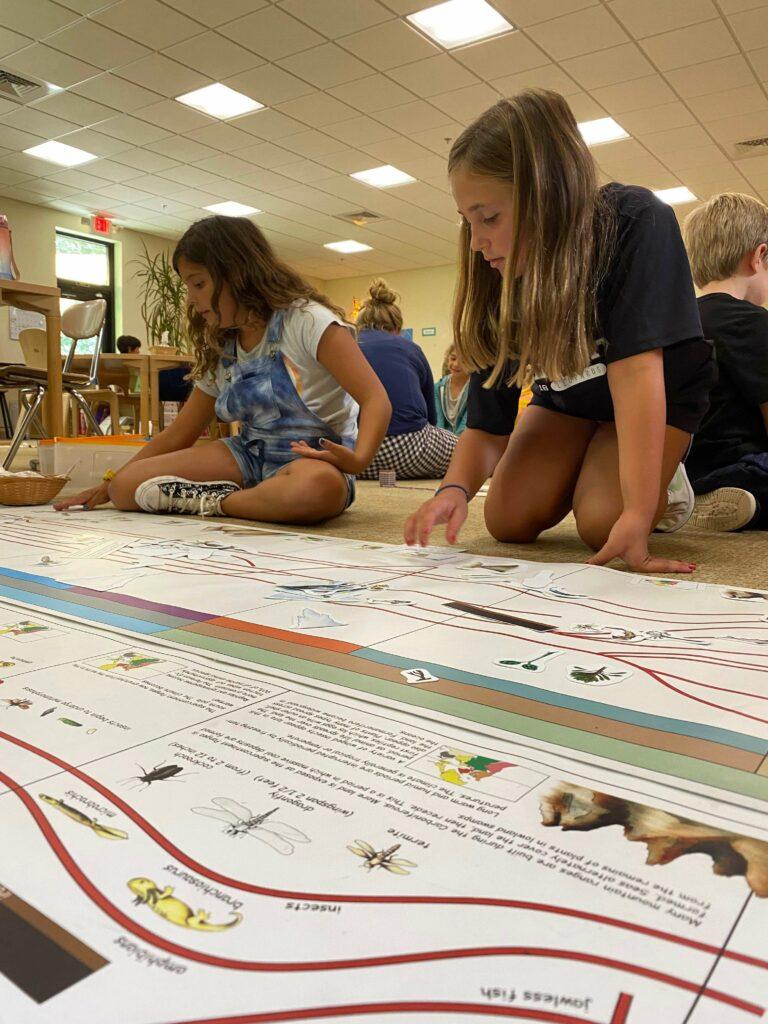Discover Our Upper Elementary Community
The three-year cycle of Upper Elementary is a “period of consolidation” during which learners integrate the lessons received and skills developed in Lower Elementary. The ability to think abstractly matures in the Upper Elementary years,and the curriculum responds to this development characteristic.
The sequence of lessons lead more and more into work on paper and into research projects. The Montessori materials then become tools which the children can use to reinforce earlier work, or to creatively explore an advanced extension of an earlier study. (For example, the material that younger children use to learn the basics of arithmetic are reinterpreted to learn algebra.) The Upper Elementary teacher becomes more and more a consultant to the children, helping them to organize their research and find resources for multi-faceted projects.
Mathematics
- Numeration - Numerical quantities, numerical symbols, place value through millions, prime numbers, rounding, integers/number line
- Computation - Continued reinforcement of addition, subtraction, multiplication, division operations, factors/multiples, divisibility, percent/ratio/proportion, exponents
- Fractions - Fractions naming/vocabulary, equivalence study, addition, subtraction, multiplication, division, simplifying and reducing
- Measurement - Linear (standard and metric), time, temperature (Fahrenheit/Celsius), weight
- Pre-Algebra - Binomials and trinomials, solving for the unknown, variables, squaring/cubing
- Geometry - Segments and angles (construction, relationships between lines, relationships between angles (complementary, supplementary), operations with angles, advanced study of triangles, measurement and relationships of plane figures, quadrilaterals (classification, parts), complex polygons (regular and irregular), circles (parts, relationships), congruency, similarity, equivalence, use of ruler, protractor, compass, perimeter, area, volume, surface area
- Problem Solving - Word problems and critical thinking, estimating, graphing (data collection, pie chart, ordered pairs), patterns and relationships, money
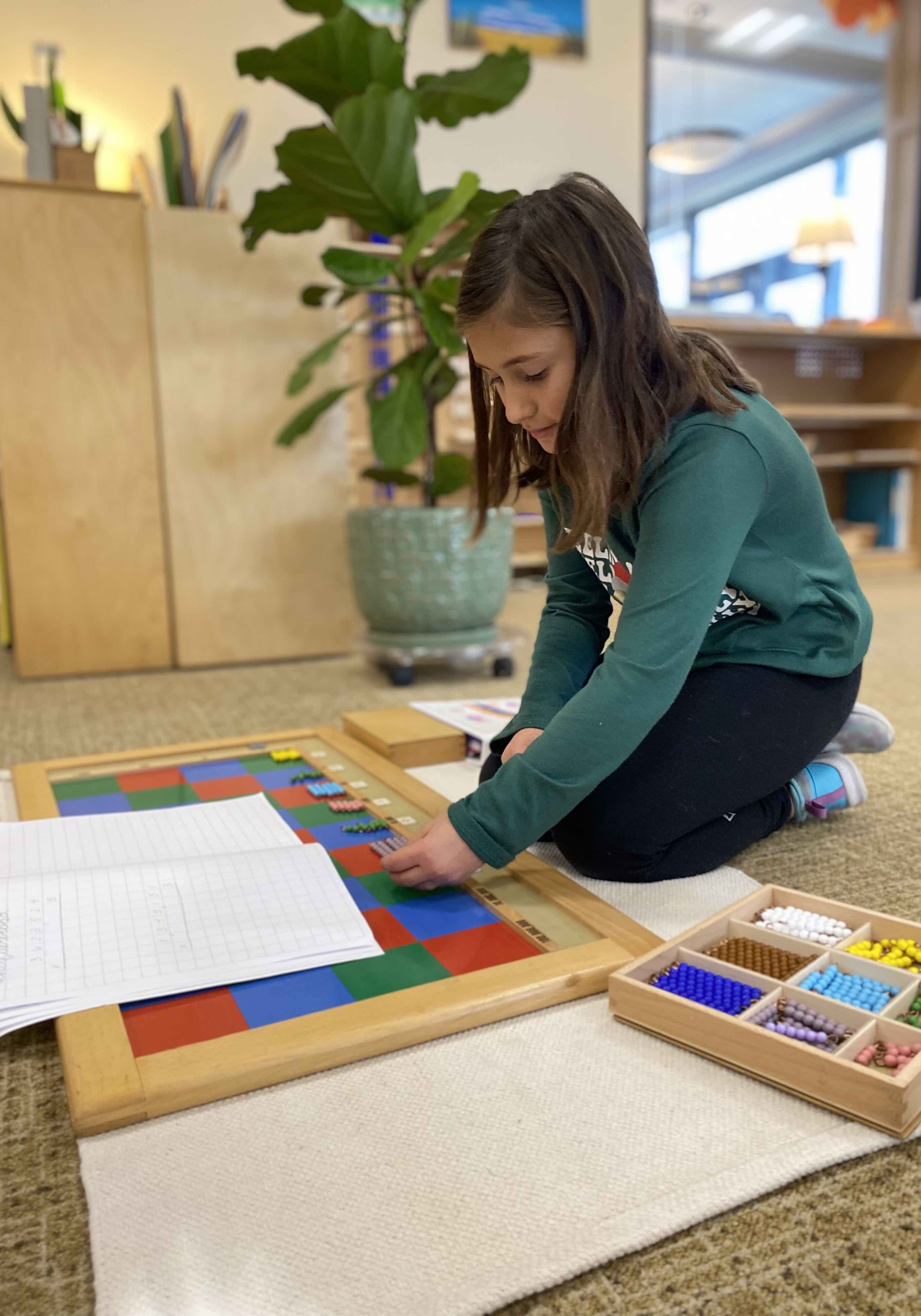
Language
- Learning to Read and Reading to Learn - Sight words and contextual clues, reading fluency and comprehension (reading for pleasure, reading for content/research, literature circles), poetry study, use of reference materials, internet
- Language Skills - Word study, parts of speech, parts of the sentence, vocabulary/spelling
- Communications Skills - Listening, storytelling, shared literature, oral presentations, public speaking/debate
- Writing Skills - Penmanship, cursive writing, types of writing (fiction writing, non- fiction writing , letter writing, poetry writing, research writing), writing traits (ideas, organization, voice, word choice, sentence fluency, conventions, presentation ) writing techniques (outlining, note-taking, sequencing, summarization, graphic organizer, drafting, revising, editing, publishing)
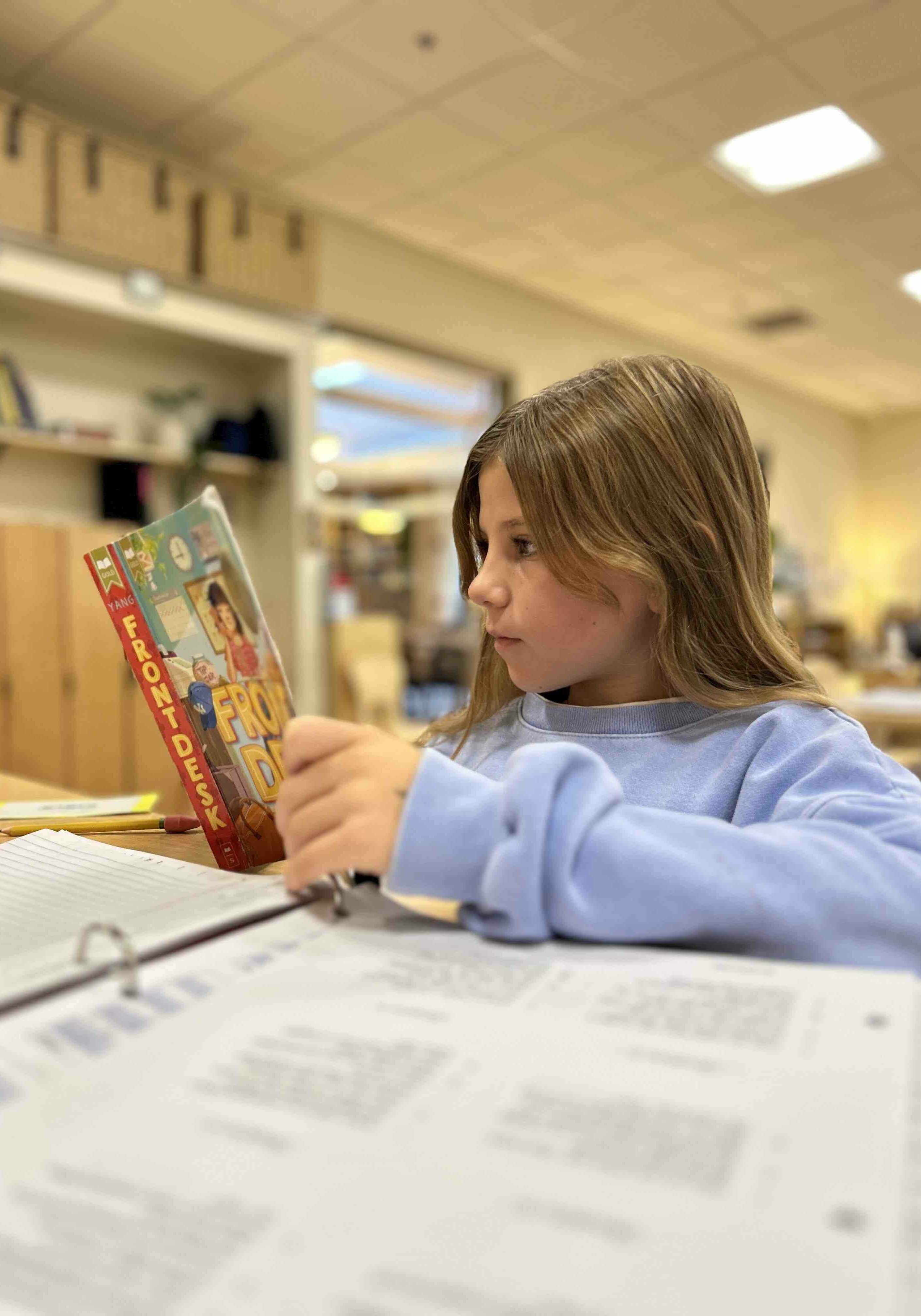
Science
- Science/Geography - Physical science, rocks and their properties, first chemistry (atomic, molecular structure, periodic table of the elements), rocks and their properties, Work of Air, Work of Water (water cycle), human body, biomes, Physical geography, political geography, economy, natural resources
- Botany/Zoology - Five kingdoms of life, tree of life, animal phyla, plant phyla, internal functions of animals, body functions of animals, the human body, internal functions of plants, structural function of plants, environmental ecology
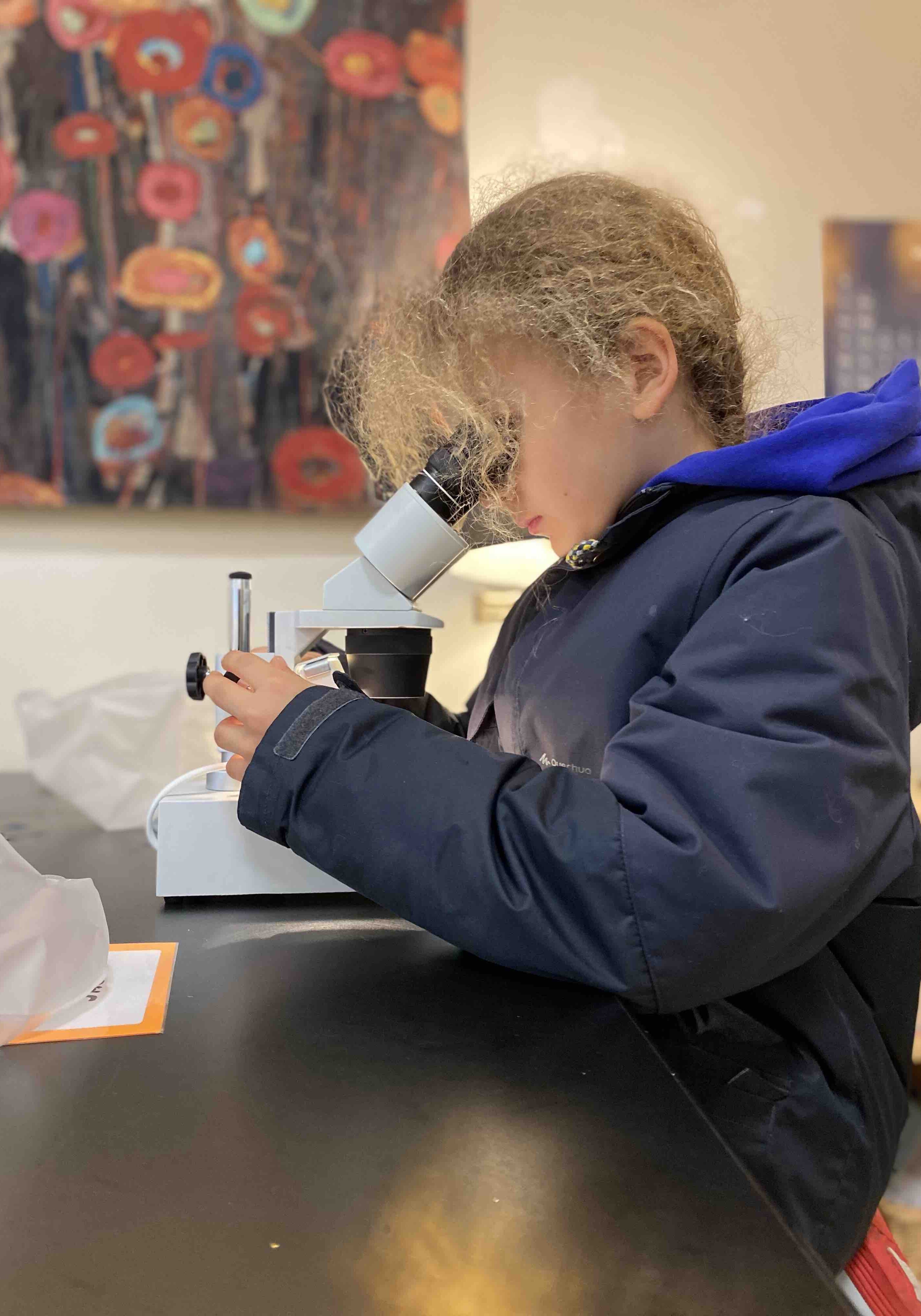
Cultural Studies
- History - Timeline of Civilization (from early humans through present day), fundamental needs of humans, study of early civilizations and cultures (early humans, first farmers, emerging cultures), world history, US history
- Capstone Trip- The 6th year capstone trip is a year-long study of the history of Rhode Island, where students choose topics that have influenced RI's history. They write expository essays on their selected topics, examine the geography of RI, and plan the entire trip, including presentations at their chosen topic, all while working within a budget. This trip not only helps students learn about the history of Rhode Island but also teaches them valuable skills such as research, planning, and budgeting.
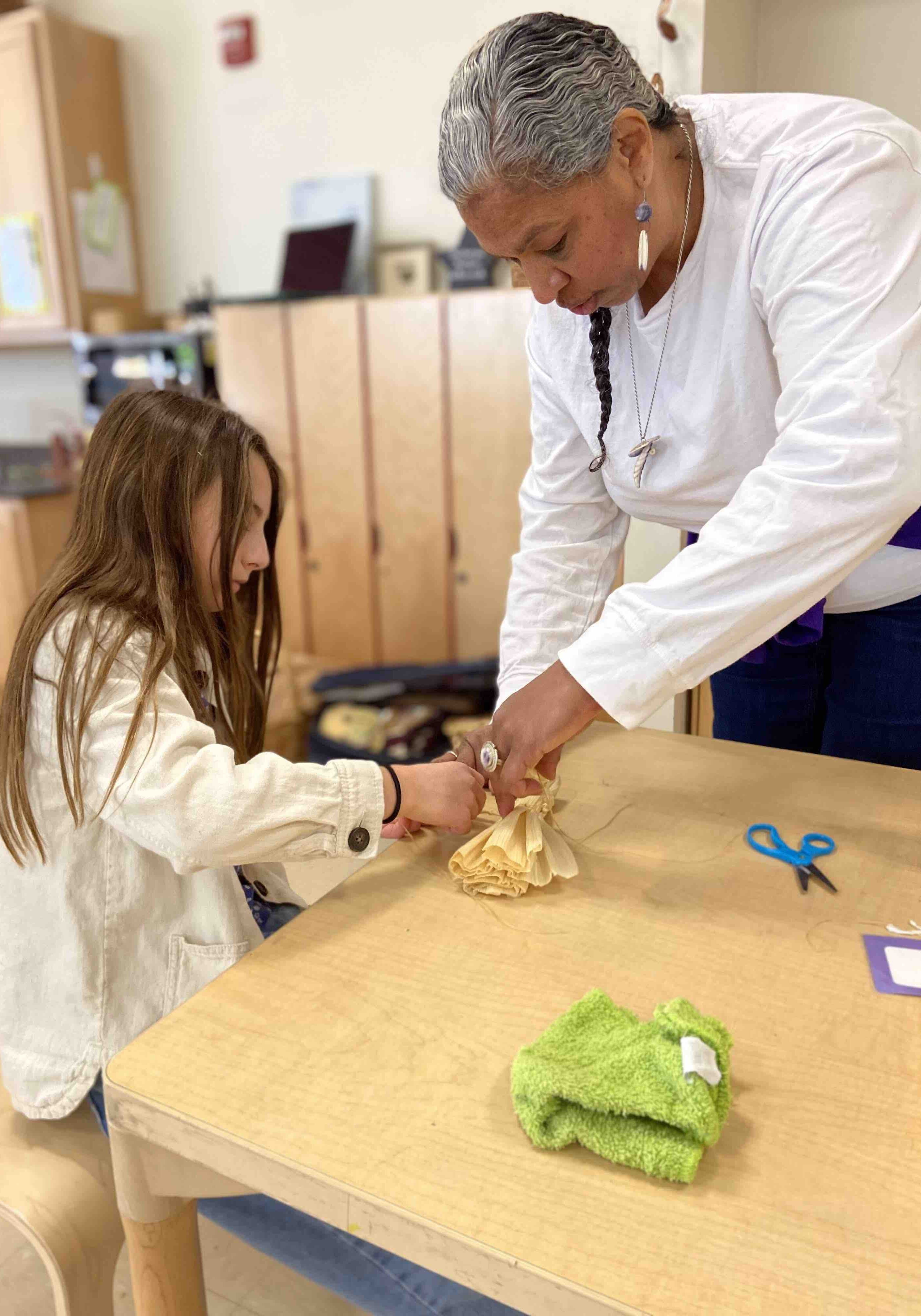
At Quest, I felt like I was in control of my own education.

